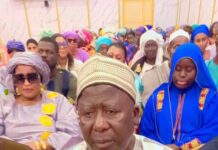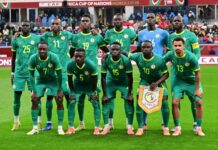The recently concluded Presidential electoral denouement was unsatisfying and ambiguous.
Corpus juris Secundum of the Gambia law
By:Kawsu Jadama Esq
The major sources of the Gambian law are: the Constitution; Decrees; Rules and Regulations; English law; Customary law; and Shari’a (law) – by virtue of S: 7 of the 1997 Constitution.
The Gambia Legal System, like most West Africa countries, is tripartite system consisting of the English Common Law and principles of equity and Statue law; Customary law which is applied by Tribunals; and Shari’a administered by Cadi Court system.
I hope I won’t be considered presumptuous if I offer some advice.
Election Time Rule – A recipe for Electoral Malpractice in Africa:
One of the factors that has aided rigging elections in Africa the world over, is the fact of the difficulty in proving electoral malpractices at the courts. The onus of proof lies on the Petitioner with limited timeline. Due to such time constraint, the courts in practice allot time to parties at trials. The implications is that, only few cases that made to the courts are won by Petitioners in election matters while, a great number of cases are lost on technicalities – The Gambia, a case in point. The effect of this scenario is that elections are made a do or die affairs. Almost every candidate to an election has formed the mentality of scheming one form of rigging device or the other just to win election, since he knows that, once a candidate is declared a winner, it is difficult to upturn the victory at the courts.
Hence a Petitioner who is genuinely robbed off an electoral victory, is faced with multiple challenges, ranging from the burden of strict proof and a limited time frame to discharge the burden. To this end, we submit that in the case of the Gambia, Ss: 49 and 124 (1), (a) are in conflict with S: 24 (1), (a) and (b) of the 1997 Constitution, thus, the Provision to secure protection of the law – is offended. Though, we are very much appreciative of the rule of lex generalis versus lex specialibus, however we still maintain our initial position.
In the case of Nigeria, S: 285 (6), (7) and (8) of the Constitution is in conflict with S: 36 of the same Constitution. The Supreme Court of Nigeria had followed this reasoning in Kadiya Vs. Lar (1983) N.S.C.C 591 and Unongo Vs. Aku (1983) N.S.C.C 563, where it relied on S: (1) of the 1979 Constitution, which is in pari materia with Ss: 129 (3) and 140 (2) of the Election Act – (which stipulated seven days time limit) as unconstitutional and void as they conflict with S: 33 (1) of the constitution.
The desirability of the election petition rule in the present democratic dispensation of the Gambia needs to be revisited. Section 49 of the 1997 Constitution – Challenge to election of President – reads: “Any registered political party which has participated in the Presidential election or an independent candidate who has participated in such an election may apply to the Supreme Court to determine the validity of the election of a President by filing a petition within ten days of the declaration of the result of election”.
Corollary to this, is the usual suspect and the infamous Rule 11 of the Election Petition Rules – Time for giving notice – and it states: “Notice of the presentation of a petition and of the nature of the proposed security SHALL be served by the petitioner on the respondent within five days after the presentation, exclusively of the day of presentation”. Section 49 of the Gambian Constitution, is in pari materia with S: 285 (5) of the Nigerian Constitution, and also finds its spirit and intent in Article 64 (1) of the Ghanian Constitution respectively.
Section 285 (5) of the Nigerian Constitution stipulates that every election petition shall be filed within 21 days after the date of the declaration of the election. By substitution (6) of S: 285, the tribunal is bound to deliver its judgment in writing within 180 days from the date of the filing of the petition, while subsection (7) of the same section states that, an appeal arising therefrom shall be concluded within 60 days of the delivery of the judgment of the tribunal or court of appeal. Whilst in the case of Ghana, Article 64 (1) states: “The validity of the election of the President may be challenged only by a citizen of Ghana who may present a petition for the purpose to the Supreme Court within twenty-one days after the declaration of the result of election in respect of which the petition is presented”. In the case of the Gambia, the timeline for delivery of judgment in electoral matters i.e Office of President, and National Assembly, is strictly time bound to thirty days only – by virtue of S: 124 (1), (a) and (b) of the 1997 Constitution. Therefore, we submit that, for ease of referencing, section 124 should have been consolidated under section 49 of the constitution. Interestingly enough or should I say unfortunately enough, the law tied the hands of the CJ in exercising discretion with regard to timeline for delivery of judgment in election matters. By virtue of subsection (2) of 124 and it reads: “It shall be the duty of the Chief Justice to ensure that compliance with the provisions of subscription (1)”. Notwithstanding, it is trite in law that, “The exercise of discretionary power shall not be arbitrary, capricious, or biased either by resentment, prejudice or personal dislike and shall be in accordance with due process of law”. We therefore humbly submit that, hence judgments around the world in election matters, become a clear cut case of rituals of the law.
In Nigeria, Time Limitation in Election Matters and the Question of Justice – Anthony Ogwugwua Agadah makes a case of the allowed for election petition. He argued that, S: 36 (1) of the 1999 (Amended) Constitution of Nigeria, provides for the right to fair hearing and stipulates that judges shall hear and determine matters before them “within a reasonable time”. A component of this legal norm as established in the famous English case of R Vs. Sussex Justices, exparte McCarthy (1924) 1KB, 254 – is the principle that, judges owe an obligation to ensure that not only must justice be done, but must be seen done in all cases. The case of Senator Adeleke Vs. Gov Oyetola, (2019) is a typical example of the negative effect of the current legal regime on timeline for election cases in Nigeria”. He further lamented that, this same provision is reproduced ipsissima verba by S: 134 (2) of the Election Act. We therefore, submit that in terms of progress, Nigeria and Ghana constitutional provisions are by far a little bit fairer than the Gambian law, with regard to timeline for instituting electoral petition process at the courts.
The only problem with Article 64 (1) of Ghana, is the wordings, and it reads: “… election of the President may be challenged only by a citizen of Ghana …”. My problem with this is that, it is open to different interpretations and therefore a double entendre. It can mean any Ghanian citizen can contest election result at the courts regardless. In contrast, the Gambian law in this regard is more progressive as to who can contest Presidential election result. Section 49 of the Gambian law is very clear as to who are the stakeholders. Par contra, the Ghanian law may lead to some kind of a slippery slope fallacy syndrome, that may have the domino effect of opening another legal Pandora’s box of multiple and endless litigations.
In the case of the Gambia, this is the first of its kind in our jurisprudence and therefore, “by virtue of its nature and potential effects, many commentators have rightly described this suit as one posing a test of the structural maturity of our democratic ethos, causing all eyes worldwide to focus on our polity, to see if and how we can surmount this unquiet challenge. Without doubt, the resolution of this case portends much for the future path of our democratic development”. These were the exact words of Ansah JSC’s description of the election petition before the Supreme Court of Ghana in 2013. This above statement of Ansah Justice of the Supreme Court of Ghana, aptly described our case.
In our case, it remains one of the most important constitutional case ever determined in our current constitutional dispensation. It is therefore, not strange that the attention that greeted it is unprecedented.
Rule 11 of the Election Petition Rules offends S: 24 (1), (a) and (b) of the 1997 Constitution, and therefore void in terms of fair hearing within a reasonable time. Void, “If an act is void, then it is in law a nullity. It is not only bad, but incurably bad … You cannot put something on nothing and expect it to stay there. It will collapse”. See Lord Denning’s enunciation in Macfoy Vs. United African Company, 3 All ER 1169 @ 1172 (1961).
Section 49 and 124 – As Constitutional Injustice:
By virtue of S: 24 of the 1997 Constitution, litigants are guaranteed the right to fair hearing within a reasonable time. Unfortunately, there is no definition of “a reasonable time” under the constitution. Commenting on the phrase, the US.Legal.com states: “Reasonable time refers to amount of time that is fairly required to do whatever is required to be done, conveniently under the permitted circumstances”.
We submit that, Ss: 49 and 124 (1), (a) and (b) of the 1997 Constitution by its own provisions has offered ample ground upon which, one could question the reasonableness of the time provided for election matters.
Technicality Versus Merit:
Technicality or Irregularity is not an Illegality. That is the internationally trending hashtag in jurisprudence the world over. In criminal justice system, there exist no room for Irregularity over Substantive Justice. Election Matters or Petitions are not like any other ordinary civil suit. They are classified as ‘Sui generis’ – meaning they are unique in their nature and form. The attitude of courts nowadays, has been that, technicalities that do not go to the root of the matter should not stand in the way of Justice. Thus, Roger Korsah J (as he then was) has this to say in the case of Adjei Vs. Foriwaa (1981) GLRD 32 “I think that when technical objections which do not go to the root of the matter stand in the way of Justice, they must be swept aside like so many impediments obscuring the paths of Justice”.
By S: 141 of the Evidence Act, 1994 – onus of proof lies on the Claimant in an action and under S: 144 (1) of the same Act, confirms that, “If the commission of an offense by a party to any proceeding is directly in issue in any proceeding civil or criminal must be proved beyond reasonable doubt”. Another lacuna in the law with regard to electoral fraud. In Nigeria, S: (35) of the Evidence Act specifically states: “Where a crime is alleged in an election matter, the standard of proof required is beyond reasonable doubt”. See Nwobodo Vs. Onoh (1984), 1SCNLR.
One striking fact about S: 49 of the 1997 Constitution is that, the ten days computation of time commences the date election results are declared with the exclusion of Sundays. The draft man of this section did not take cognizance of the:
a) The difficulties legal practitioners encountered in obtaining certified true copies of judgments in our courts, if the case is up for appeal.
b) The time expected in the preparation and filing of the Notice of Appeal and the compilation of records of appeal.
Further more, it is also observed that S: 49 which placed a time limitation on election petition cases did not take into account the need for an extension of this time in deserving circumstances. Ordinarily, there should exist a room for extension of time. Unfortunately, the regime of S: 49 of the 1997 Constitution provides no extension of time in such circumstance.
Amicus curiae:
It is indeed labyrinthine, but astonishingly surprising too, for an important case of this nature, did not receive the attention of amici curiae. Frequently, a person or a professional body who is not a party to a case, but has a strong interest in the matter, will petition the court for a permission to submit a brief in action with the intent of influencing court’s decision.
The first recorded appearance of an amicus curiae in the Supreme Court of America occurred in 1821. See Green Vs. Biddle, 21 U.S (8 Wheat) 1 (1823), which perhaps not coincidentally was the first year the Court accepted written briefs for filing. The first recorded Gambian amicus curiae brief: See Mary Goddard Vs. Khadi Manjang & Khadi N’Dongo (1967) SUM Vol. 11; Iss. 2. In this case, the Court called on A.S.B Saho to help the Court on Islamic law of inheritance and marriage, and the eventually decided on the merits of the expert information provided by Amicus A.S.B Saho.
The recent participation of amicus, is the case of The State Vs. Yankuba Touray. The Gambian Supreme Court, among other avalanche of authorities, case laws and principles, adopted the line of argument of the following learned amici curiae: Gaye Sowe; N.M.C Cham; S. Taal; and A. Fatty of Counsel.
It is submitted that, the judiciary in the Gambia has a great role to play in curing the injustice created by the constitutional provisions under review – through the process of judicial activism in a bit to develop our nascent democracy. The late Chief Justice J.S Verma of India defined judicial activism as “the active process of implemention of the rule of law essential for the preservation of a functional democracy”. It is also described as the philosophy of judicial decision-making process, whereby judges allow their personal views about public policy among other factors, to guide their decisions (Blacks’ Law Dictionary).
In the United States of America, judicial activism dates back to the famous case of Marbury Vs. Madison 5US (1 Cranch) 137 (1803).
In Nigeria, it was displayed in Adegbenro Vs. Akintola (1963) All ER 305, Lakanmi Vs. A. G Western Nig (1970) NSCC 143.
It is opined that the only remedy to the current flaw in our electoral system is an amendment to Ss: 49 and 124 of the Constitution, and other similar sections of the Election Act, and the Election Petition Rules dealing on election timeline. Such amendments should give the courts or the appellate courts the power to extend the period beyond the stipulated time either suo moto or by cogent reasons for such application.
We believe that, if this provision had existed or envisaged, most petitioners would have been given another opportunity for a fair hearing.
Also, it is our sheer believe that, if Ss: 49 and 124, Election Act, and Rule 11 of the Election Petition Rules remain in our statute’s books, the basic rule of natural justice in so far as litigants are concerned, would not be given fair trial. Where cases are truncated without genuine trial in deference to the time limit rule, it only leads to injustice from the very constitution which was promulgated to propagate justice in the land.
In our final summation, it is the humble submission of this writer that recourse to judicial activism remains the only means by which our judiciary will and can cure the current absurd situation created by the election timeline rule. Put it differently, by weaponizing the judiciary, remains the only way to adequately and efficiently deal with election matters. This should not be taken as an aberration or a departure from the norms.
We also submit that, the law is not cast in stone, and the provisions of the law are neither carved in stone either. This may sound a bit weird, but the current regime of our electoral laws are adequate, but not necessarily sufficient.
The views and opinions expressed in this write up are those of the author and do not represent or reflect the views of Alkamba Times. Statement like this is not meant to agitate anyone, if it does, then words failed me. To err is human, and to forgive is divine.
Kawsu Jadama, Esq…






